What do you think:
- Do you think that individuals’ mindsets change by age?
- If so, what does that relationship look like?
- Do you think they generally grow more positive or negative as people get older?
Questions like this are some of my most frequently asked questions, and I think, most of the time, those asking have a hypothesis that people grow more fixed and closed as they get older.
For the last six months, I have been collecting age data with my mindset assessment to be able to answer these questions.
Before I get into the results, it is important to keep a few things in mind:
- These are all on a seven-point scale
- The measures (which I did not create) were not designed to have a mean at the midpoint of that scale (4.0)
- Each mindset has a different mean
Let’s dive in looking at the relationship between mindsets and age for each of the four sets of mindsets one-by-one.
Growth Mindset
(Click here if you don’t feel clear on what a growth mindset is)
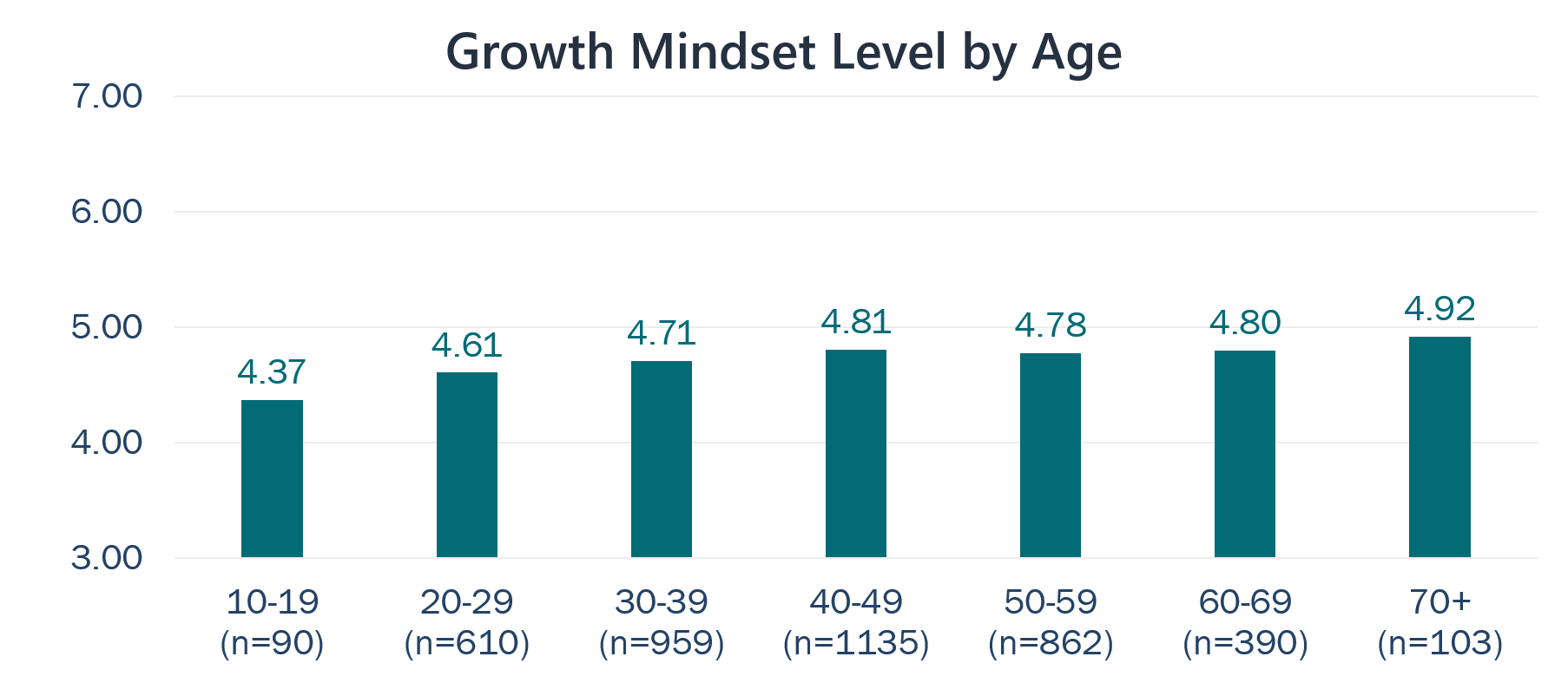
Findings:
- Overall, there isn’t a correlation between growth mindset and age
- It does appear that people become more growth-minded until they hit their 40’s and then they level out, suggesting we may get more growth-minded over time (but, there is no way of knowing what the mindset of those currently in their 40’s was when they were in their teens or 20’s)
Open Mindset
(Click here if you don’t feel clear on what an open mindset is)
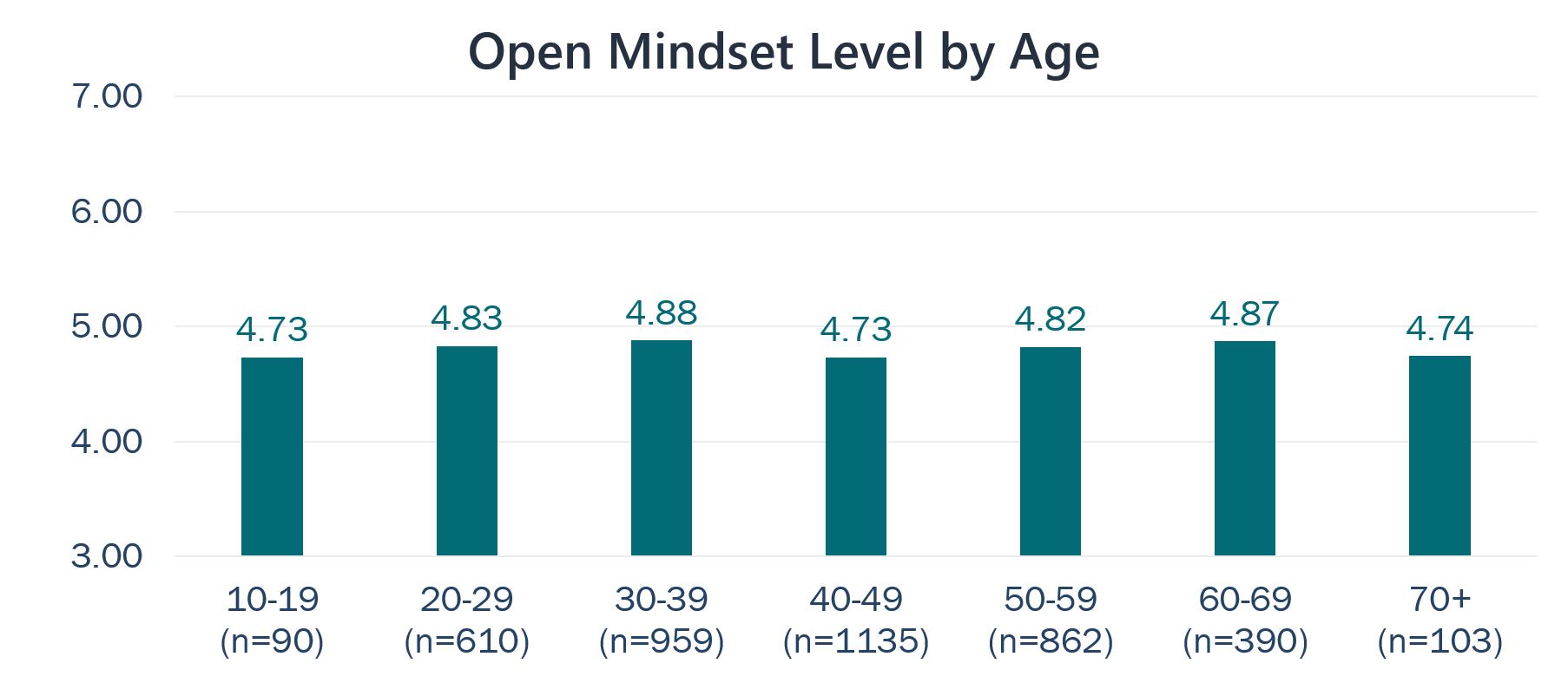
Findings:
- Overall, there isn’t a correlation between open mindset and age
- There is less fluctuation of this mindset over time when compared to growth mindset
- I find it incredibly interesting that there is a pretty large dip in when people hit their 40’s. They go from the highest level in their 30’s to a level on par with teenagers (who have a reputation of “knowing it all”)
Promotion Mindset
(Click here if you don’t feel clear on what a promotion mindset is)
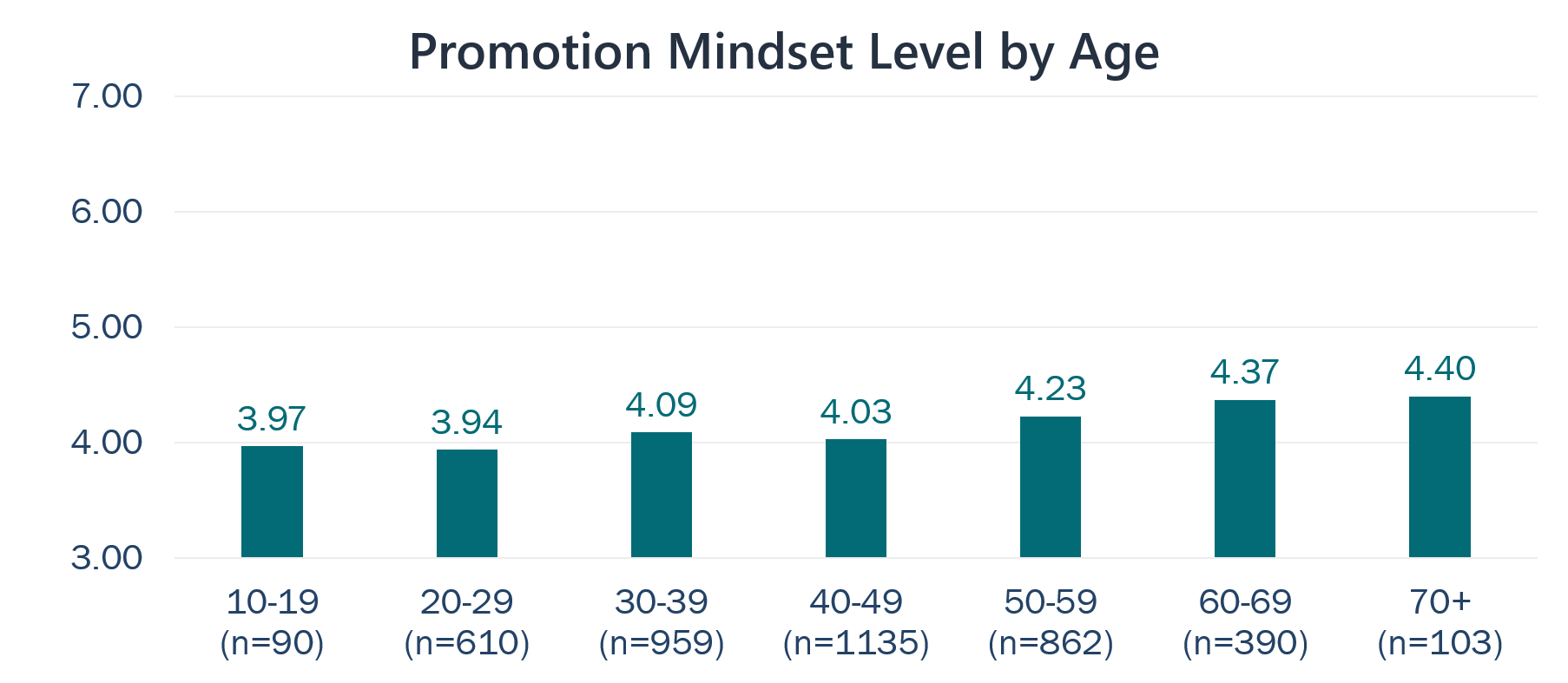
Findings:
- Overall, there is a small positive correlation between promotion mindset and age
- There is a rather large jump up in a promotion mindset when people hit their 50’s, and it continues to increase. It seems they get to a stage in their life where they seem to focus more on living with purpose and focus less on living in fear (of problems, messing up, etc.).
Outward Mindset
(Click here if you don’t feel clear on what an outward mindset is)
Findings:
- Overall, there is a moderate positive correlation between outward mindset and age
- We see the greatest fluctuation as people age with this mindset compared to the others
- As people age, they seem to get more outward-minded and less inward-minded. In other words, as we age, the value we place on ourselves relative to others goes down.
Overall Observations
Here are some of my high-level takeaways:
- For three of the four mindsets (the exception being outward mindset), there really isn’t a relationship between mindsets and age. This suggests, that those who are older are just as likely to have positive/negative mindsets as those who are younger (if anything there is a lean toward those who are older having more positive mindsets)
- There is a pretty significant positive relationship between outward mindset and age. We seem to be more capable of seeing others as people as opposed to objects as we get older. But, it makes me wonder, how might our world be different if we can get help those who are younger do a better job of thinking less of themselves and more of others.
- The head-scratcher for me is the relative close-mindedness of those in their 40’s. To go from a peak of being open-minded in one’s 30’s to being in the relative basement in one’s 40’s is surprising. One hypothesis is that those in their 40’s feel they need to “show off” all of the knowledge they have accumulated and are inclined to think that they don’t have much more to learn. Another hypothesis is that our 40’s is more of a “survival mode” time than other decades (mid-life crisis?).
- Overall, this data supports my belief that mindset development is much more a function of effort than it is of age.




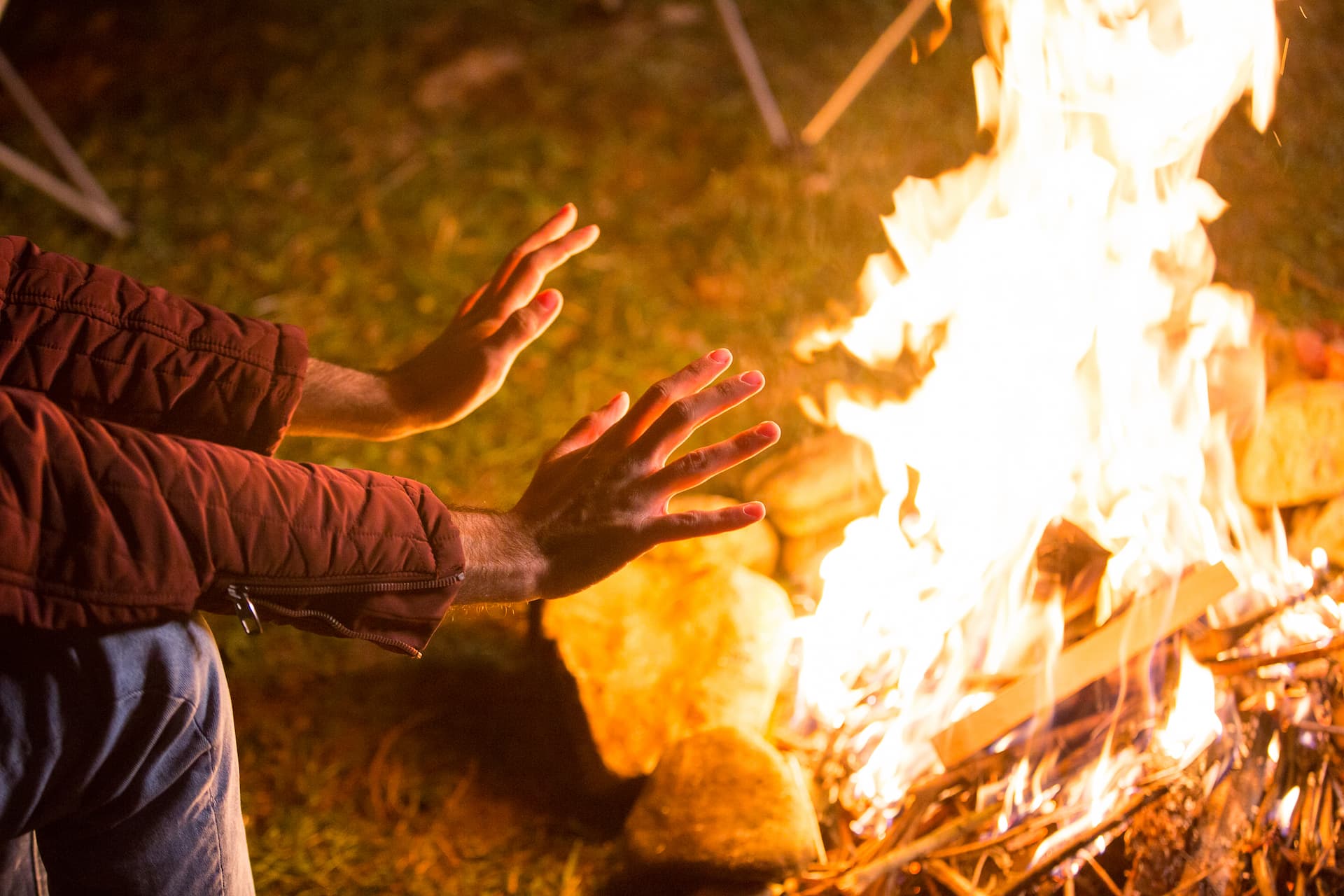






2 Responses
I’m wondering if the observed relative close-mindedness of people in their 40s is a reflection of who they are at work or of at home. The 40s are peak parenting years where at home they may find themselves being more closed minded in that parenting role with their young children and teenagers.
Good point, and I have received several emails hypothesizing similarly. Perhaps our 40’s is a time we feel most in “survival mode.” I’ll have to look into aging research if there are findings that can back this up.